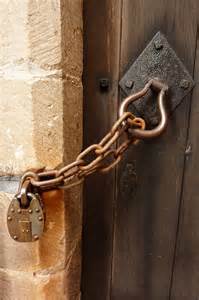Module 5 - Criminal Profiling
Lesson 2 - The Use of Criminal Profiling in Homicide Investigations
Organized Offenders or Disorganized Offenders
|
|
In 1980, Roy Hazelwood and John Douglas made a distinction between organized and disorganized criminal behaviour. Both Hazelwood and Douglas were criminal profilers working in the FBI’s Behavioral Science unit. Organized Offenders: As the name implies, organized offenders plan and execute their crimes in organized ways because they are scheming, deliberate, and methodical individuals. The organized offender is a self-absorbed psychopath lacking empathy and remorse. Most organized offenders are well spoken, outgoing, and pleasant. Because of this, they appear non-threatening at first. Organized offenders target their victims, choosing primarily strangers whom they often capture by conning them, perhaps by offering money or asking for assistance. Offenders usually bring their own weapons and take them from the crime scenes. Organized offenders are careful; they often take time to clean up or remove evidence such as fingerprints, blood, bullet cartridges, or knives from the crime scenes. Often this type of offender will move or conceal the body. Disorganized Offenders: In contrast, disorganized offenders are loners with poor social skills. They often feel inadequate and have difficulties maintaining friendships and loving relationships. Disorganized offenders tend to appear unkempt and often will live in messy homes. Their crimes are usually committed impulsively sparked by a mental disorder, drugs, alcohol, youth, or inexperience. The disorganized offender tends to attack people they know, such as family, friends, neighbours, or acquaintances. Their victims are incapacitated quickly without much warning and usually left badly mutilated. They often kill their victims with items at the crime scene and make no effort to hide the weapons or the bodies afterwards. This type of offender leaves a chaotic mess. “The organized offender is a crafty wolf, while the disorganized offender is more like a wild dog.” - Stephen G Michaud and Roy Hazelwood, The Evil That Men Do, (1998) The following two lists outline some of the potential behavioural and personality traits often exhibited by organized and disorganized offenders.
Some criminals (on the advice of their defence lawyers) plead not guilty by reason of insanity to excuse themselves from lengthy criminal trials. This type of defence applies to a wide range of mental disorders, one of the most popular being psychosis caused by schizophrenia. Those who argue this type of defence successfully are usually sentenced to clinical treatment rather than prison. They may be released when they are certified as safe to society. |
||||||||||||||||||||||||||||||||||||||||||||||
|---|---|---|---|---|---|---|---|---|---|---|---|---|---|---|---|---|---|---|---|---|---|---|---|---|---|---|---|---|---|---|---|---|---|---|---|---|---|---|---|---|---|---|---|---|---|---|---|
![]() Mutilated
Mutilated
- an act or physical injury that degrades the appearance or function of the body, usually without causing death
![]() Incapacitated
Incapacitated
- disabled or deprived of strength or ability
![]() Impulsive
Impulsive
- acting without apparent forethought, prompting, or planning
![]() Remorse
Remorse
- moral anguish arising from bitter regret for past misdeeds
![]() Empathy
Empathy
- showing an understanding of another's situation, feelings, and/or motives
![]() Psychopath
Psychopath
- a person with a serious mental illness or a disorder impairing capacity to function normally and safely (This person tends to be anti-social.)
![]() Methodical
Methodical
- arranged or proceeding in regular, systematic order
